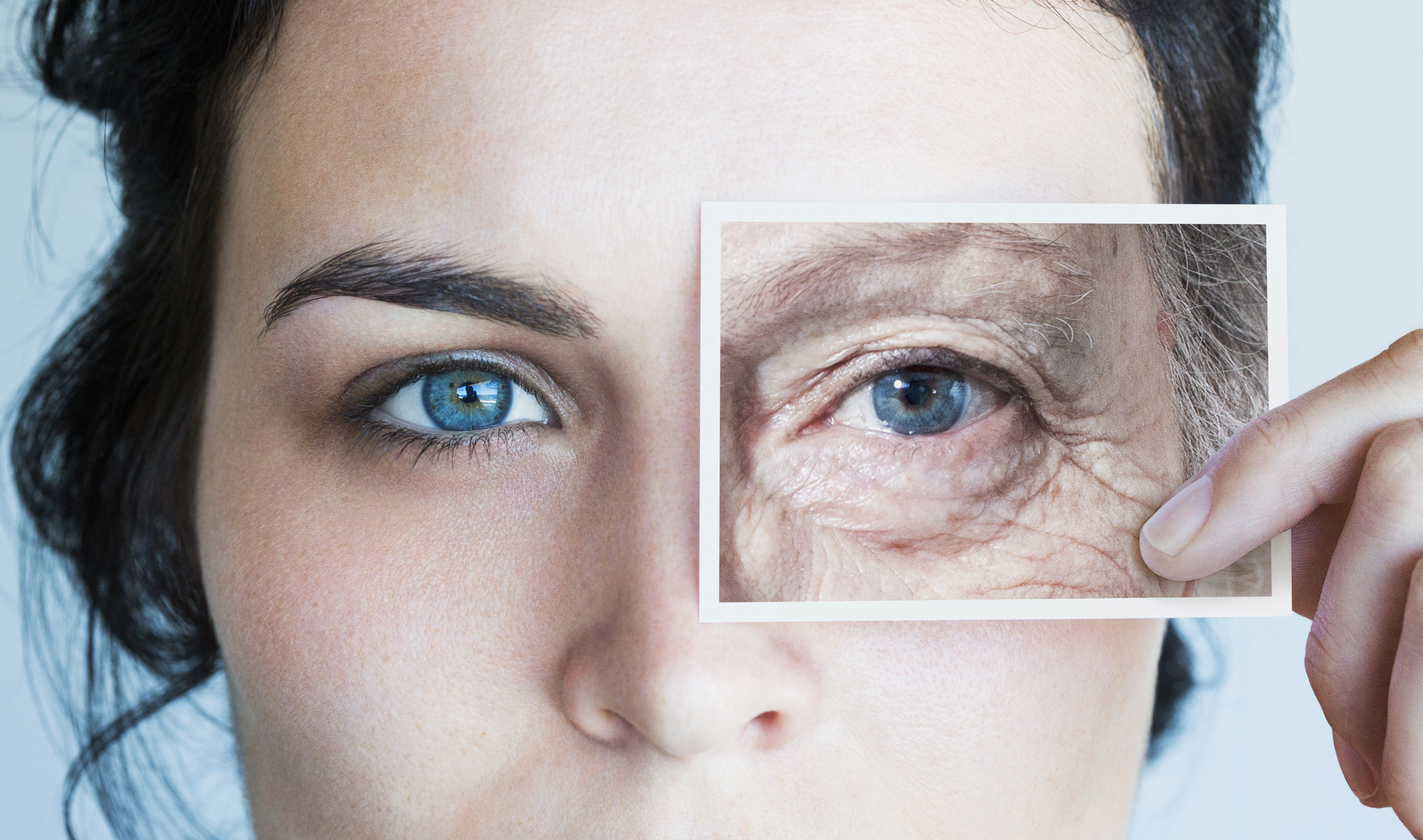COVID Aged Your Brain Faster, Even if You Didn't Get Sick
Whether you contracted COVID or not, your brain took a hit. Here's what that means for your health and what you can do about it.


Profit and prosper with the best of Kiplinger's advice on investing, taxes, retirement, personal finance and much more. Delivered daily. Enter your email in the box and click Sign Me Up.
You are now subscribed
Your newsletter sign-up was successful
Want to add more newsletters?
As anyone who lived through the coronavirus pandemic knows, COVID-19 changed every aspect of life. From lockdowns to school closures to mask controversies and a shift to remote work, the pandemic was marked by uncertainty, stress, and isolation.
This period in the world's history brought broad consequences. Millions lost their lives, others suffered (or are still suffering) from the effects of long-COVID, and many are still coping with the economic fallout to this day.
Yet the human toll may still be greater than many realize. That's because a new study showed that the coronavirus pandemic has had a surprising and troubling effect on the brain. The pandemic impacted even those who did not get sick, and the long-term effects remain unknown. Here's what the study showed, and what it could mean for your health.
From just $107.88 $24.99 for Kiplinger Personal Finance
Become a smarter, better informed investor. Subscribe from just $107.88 $24.99, plus get up to 4 Special Issues

Sign up for Kiplinger’s Free Newsletters
Profit and prosper with the best of expert advice on investing, taxes, retirement, personal finance and more - straight to your e-mail.
Profit and prosper with the best of expert advice - straight to your e-mail.
COVID-19 accelerated brain aging
The new research, published in Nature Communications, involved a review of data from the UK Biobank, which launched in 2006 to monitor anonymous health data from 500,000 volunteers who were between the ages of 40 and 69 at the time.
Study co-author Ali-Reza Mohammadi-Nejad and his colleagues reviewed brain scans from thousands of healthy adults with an average age of 63 and used AI to pinpoint brain age. Scans were studied from both the pre- and post-pandemic period, with those who were scanned before designated as the control group.
A review of the scans showed that the brains of people who lived through COVID aged an average of 5.5 months faster compared with those in the control group. This held true even for those who did not develop COVID-19 at any point during the pandemic. And, those who experienced unemployment, general poor health, or low income saw their brains age even faster.
Older participants and men showed the most pronounced pandemic-related acceleration in brain aging, which is unsurprising as these individuals are known to experience more neurological changes in response to stress.
While the study did not highlight a specific cause of the accelerated brain aging, Mohammadi-Nejad believes that it was likely driven by the social isolation caused by the pandemic, as well as by psychological stress, disruptions to normal routine, and reduced activity levels.
The study “really underlines how significant the pandemic environment was for mental and neurological health”, Mahdi Moqri, a computational biologist who studies aging at Harvard Medical School, told Scientific American.

Will accelerated brain age affect your health? What you can do.
Of course, no one wants their brain to age faster, but the big question is what consequences this phenomenon will have on long-term health.
A review of data from patients who had completed cognitive tests before and after the pandemic revealed that cognitive decline only affected those who had a SARS-CoV-2 infection in the period of time between the pre- and post-pandemic scans.
Still, while the accelerated brain aging may not be affecting cognitive function yet, it's unclear what the future holds. “Some changes do not trigger symptoms, and some others take many years for any symptom to be manifested,” says Mohammadi-Nejad.
Possible consequences of brain aging include reduced brain volume, thinning of the cerebral cortex, and changes to neurotransmitter systems that can result in decreased cognitive function. Obviously, none of these consequences are things that you want to happen faster than normal.
Sadly, there's nothing you can do to avoid putting your brain through a pandemic, much as we would all like to erase that time and those memories.
Instead, you'll have to focus on brain health going forward. Tricks to keep your mind sharp can include embracing healthy foods (such as the Mediterranean diet), focusing on maintaining an active social life and strong social connections, and remaining excited about life.
COVID-19 already took so much from so many; don't let it take good months or years off your life by simply accepting the damage to your brain. Fight back by focusing on brain health to try to undo the harm done.
Read More
Profit and prosper with the best of Kiplinger's advice on investing, taxes, retirement, personal finance and much more. Delivered daily. Enter your email in the box and click Sign Me Up.

Christy Bieber is an experienced personal finance and legal writer who has been writing since 2008. She has been published by Forbes, CNN, WSJ Buyside, Motley Fool, and many other online sites. She has a JD from UCLA and a degree in English, Media, and Communications from the University of Rochester.
-
 3 Smart Ways to Spend Your Retirement Tax Refund
3 Smart Ways to Spend Your Retirement Tax RefundRetirement Taxes With the new "senior bonus" hitting bank accounts this tax season, your retirement refund may be higher than usual. Here's how to reinvest those funds for a financially efficient 2026.
-
 5 Retirement Tax Traps to Watch in 2026
5 Retirement Tax Traps to Watch in 2026Retirement Even in retirement, some income sources can unexpectedly raise your federal and state tax bills. Here's how to avoid costly surprises.
-
 Trump's New Retirement Plan: What You Need to Know
Trump's New Retirement Plan: What You Need to KnowPresident Trump's State of the Union address touched upon several topics, including a new retirement plan for Americans. Here's how it might work.
-
 3 Smart Ways to Spend Your Retirement Tax Refund
3 Smart Ways to Spend Your Retirement Tax RefundRetirement Taxes With the new "senior bonus" hitting bank accounts this tax season, your retirement refund may be higher than usual. Here's how to reinvest those funds for a financially efficient 2026.
-
 Trump's New Retirement Plan: What You Need to Know
Trump's New Retirement Plan: What You Need to KnowPresident Trump's State of the Union address touched upon several topics, including a new retirement plan for Americans. Here's how it might work.
-
 Buy and Hold … or Buy and Hope? It's Time for a Better Retirement Planning Strategy
Buy and Hold … or Buy and Hope? It's Time for a Better Retirement Planning StrategyOnce you're retired, your focus should shift from maximum growth to strategic preservation and purposeful planning to help safeguard your wealth.
-
 Your Legacy Is More Than Your Money: How to Plan for Values, Not Just Valuables
Your Legacy Is More Than Your Money: How to Plan for Values, Not Just ValuablesLegacy planning integrates your values and stories with legal and tax strategies to ensure your influence benefits loved ones and good causes after you're gone.
-
 4 High-End Experiences Worth the Splurge After 50
4 High-End Experiences Worth the Splurge After 50These curated date ideas provide the perfect backdrop for couples ready to enjoy the very best that the world has to offer.
-
 My Grandkids Want Me to Donate to Their Teams and School Fundraisers. I Adore Them, but I'm on a Budget.
My Grandkids Want Me to Donate to Their Teams and School Fundraisers. I Adore Them, but I'm on a Budget.When your heart says "yes" but your wallet says "no," there is still a way forward. Here's what financial pros say.
-
 Your Retirement Age Is Just a Number: Today's Retirement Goal Is 'Work Optional'
Your Retirement Age Is Just a Number: Today's Retirement Goal Is 'Work Optional'Becoming "work optional" is about control — of your time, your choices and your future. This seven-step guide from a financial planner can help you get there.
-
 It's Time to Bust These 3 Long-Term Care Myths (and Face Some Uncomfortable Truths)
It's Time to Bust These 3 Long-Term Care Myths (and Face Some Uncomfortable Truths)None of us wants to think we'll need long-term care when we get older, but the odds are roughly even that we will. Which is all the more reason to understand the realities of LTC and how to pay for it.